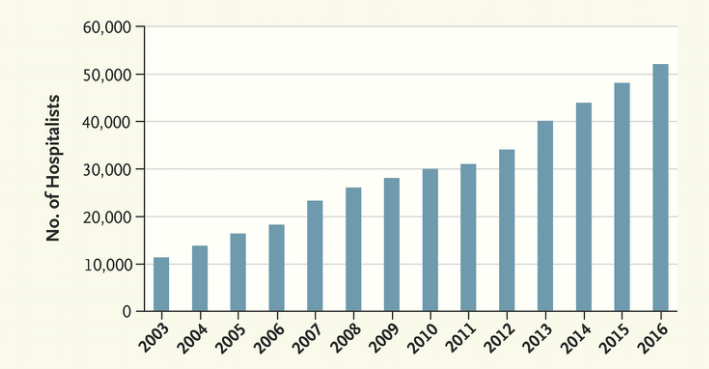
It has been twenty years since Wachter and Goldman published their first descriptive paper on the rise of the hospitalist. To commemorate the occasion, they revisit the subject with a new commentary and highlight where the movement is at and portend the future of the discipline:
When we described the hospitalist concept 20 years ago, we argued that it would become an important part of the health care landscape. Yet we couldn’t have predicted the growth and influence it has achieved. Today, hospital medicine is a respected field whose greatest legacies may be improvement of care and efficiency, injection of systems thinking into physician practice, and the vivid demonstration of our health care system’s capacity for massive change under the right conditions.
A shadow piece by Richard Gunderman laments the ruin of the jack of all trades general practitioner who use to do it all. Many of the criticisms, none new, are all still relevant and worth considering two decades later. He eloquently sums up his sentiments here:
More broadly, the profession of medicine stands to suffer. As patient care becomes increasingly fragmented, many physicians find it more and more difficult to provide truly integrated care. Physicians whose practices rest on a clear separation between inpatient and outpatient care or manifest a shift-work mentality are more likely to respond to requests from patients and colleagues with, “Sorry, but that’s not in my job description.” Such practice models may make physicians’ lives easier, but they may also reduce professional fulfillment and promote burnout.
I would call them must reads. So be off and click.
Bonus: HM Turns 20: A Look at the Evolution of Hospital Medicine



Leave A Comment